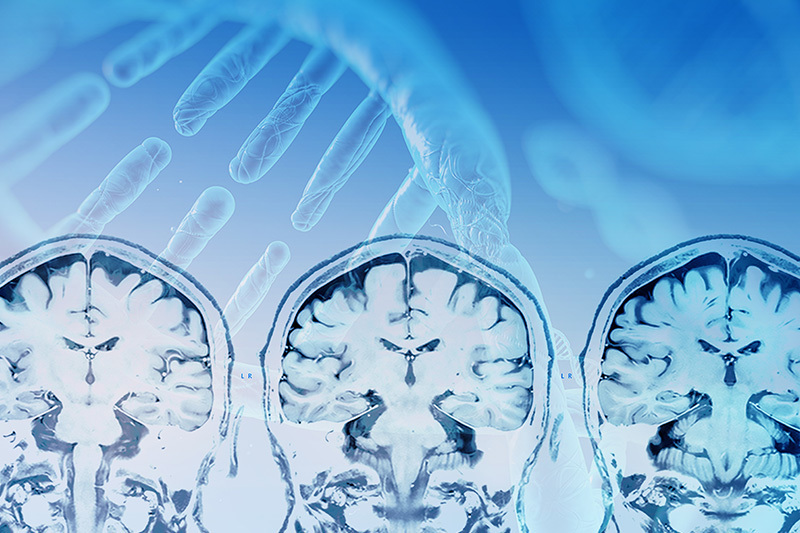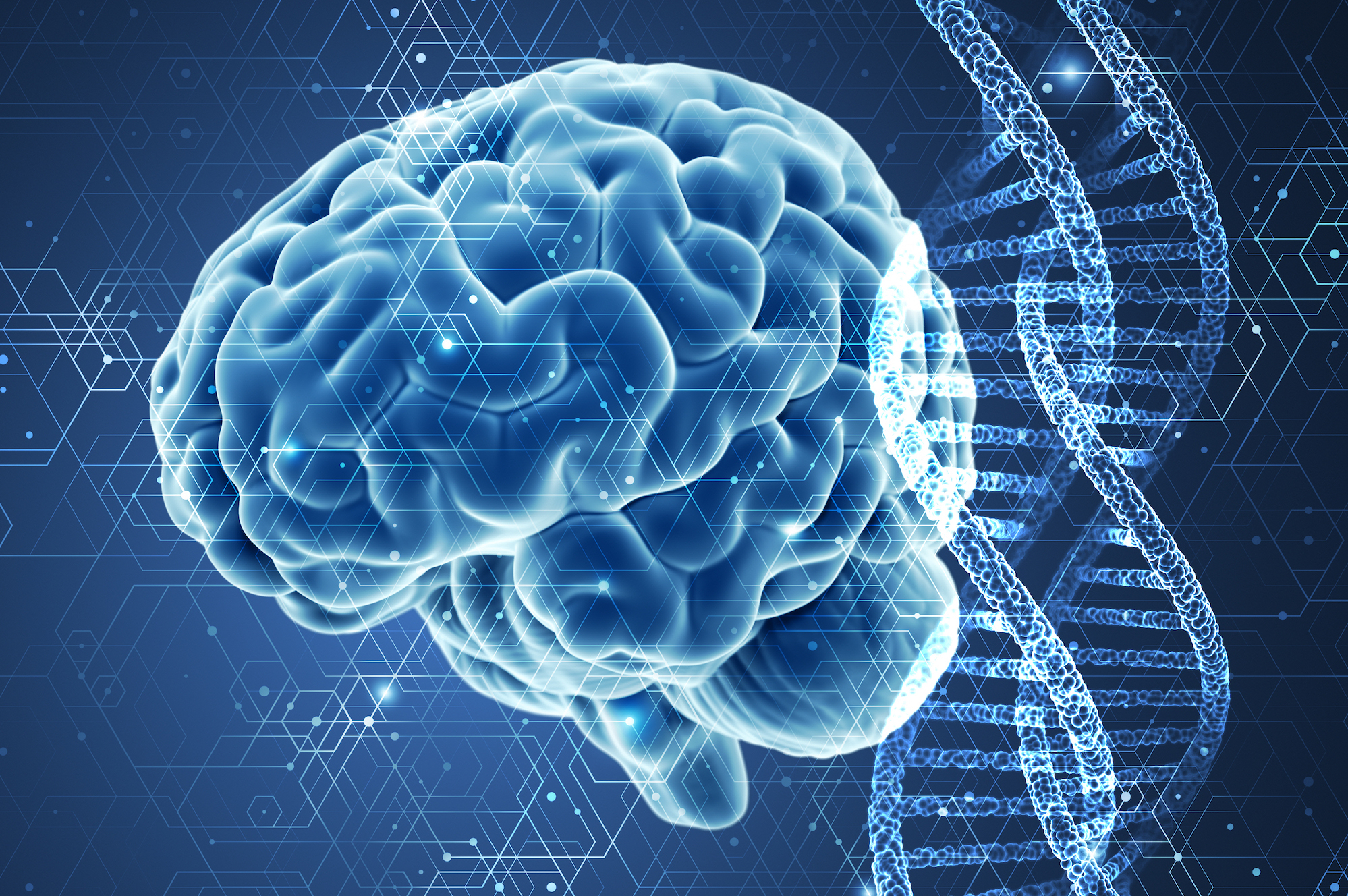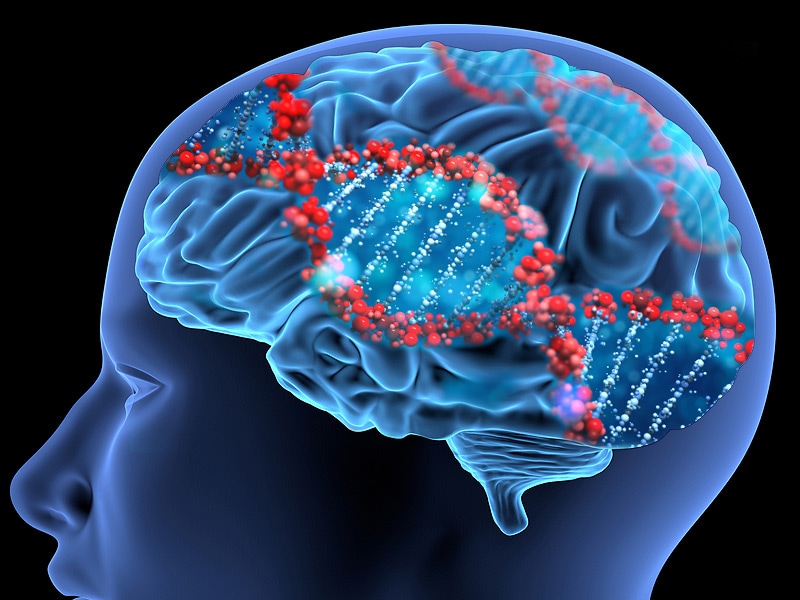The concept of the "gene in the US brain" has emerged as a fascinating topic in modern science, offering insights into how genetic factors influence brain development and cognitive functions in the American population. It explores the intricate relationship between genetics and brain health, shedding light on how specific genes play a crucial role in shaping intelligence, behavior, and susceptibility to neurological disorders. This article aims to provide an in-depth understanding of this complex subject, breaking it down into digestible sections for readers to grasp easily.
With advancements in genetic research and neuroscience, scientists are unraveling the mysteries of how genes impact brain function. The US has been at the forefront of this research, contributing significantly to global knowledge in this field. Understanding the genetic makeup of the brain can lead to groundbreaking discoveries in treating neurological conditions and enhancing cognitive abilities.
This article will delve into various aspects of the gene in the US brain, including its significance, recent findings, and implications for the future. By exploring this topic comprehensively, we aim to equip readers with valuable information that can enhance their understanding of genetic influences on brain health.
Read also:Dig N Play The Ultimate Family Entertainment Destination
Table of Contents
- Introduction to Genes and Their Role in the Brain
- Genetic Research in the US: A Historical Perspective
- Key Genes Affecting Brain Development and Function
- Genetic Disorders Linked to the Brain
- Advancements in Neuroscience and Genetic Studies
- Impact of Genes on Cognitive Functions
- Interplay of Environmental Factors with Genetic Influences
- Future Research Directions in Genetic Brain Studies
- Ethical Considerations in Genetic Research
- Conclusion and Call to Action
Introduction to Genes and Their Role in the Brain
Genes are the fundamental units of heredity, carrying the instructions necessary for the development and functioning of all living organisms. In the context of the human brain, genes play a pivotal role in determining its structure, function, and overall health. The study of genes in the US brain focuses on understanding how these genetic instructions influence cognitive abilities, emotional regulation, and susceptibility to neurological disorders.
The human genome contains approximately 20,000-25,000 genes, and a significant portion of these genes are involved in brain-related functions. By identifying and studying these specific genes, researchers can gain insights into how they contribute to the complexities of brain development and function. This knowledge is vital for developing targeted therapies and interventions for various neurological conditions.
How Genes Influence Brain Development
During the early stages of brain development, genes act as blueprints, dictating the formation of neurons, synapses, and other essential components of the nervous system. Mutations or variations in these genes can lead to developmental disorders such as autism, schizophrenia, and intellectual disabilities. Understanding the genetic basis of these conditions is crucial for developing effective treatments and improving quality of life for affected individuals.
Genetic Research in the US: A Historical Perspective
The US has a rich history of groundbreaking research in genetics and neuroscience. From the discovery of DNA's structure by James Watson and Francis Crick to the completion of the Human Genome Project in 2003, American scientists have consistently pushed the boundaries of genetic knowledge. This historical context provides a foundation for current research endeavors focused on the gene in the US brain.
Advancements in technology, such as CRISPR-Cas9 gene editing, have revolutionized the field of genetics, enabling researchers to manipulate genes with unprecedented precision. These innovations have opened new avenues for exploring the genetic underpinnings of brain-related conditions and developing novel therapeutic approaches.
Key Genes Affecting Brain Development and Function
Several genes have been identified as playing critical roles in brain development and function. These include:
Read also:Cambria County Fair A Vibrant Celebration Of Tradition And Community
- FOXP2 Gene: Known as the "language gene," FOXP2 is essential for the development of speech and language abilities.
- APOE Gene: Associated with Alzheimer's disease, variations in the APOE gene can increase or decrease the risk of developing this neurodegenerative condition.
- DRD4 Gene: Linked to attention-deficit/hyperactivity disorder (ADHD), the DRD4 gene influences dopamine receptors in the brain.
Functions of Key Genes
Each of these genes contributes to specific aspects of brain function, from language acquisition to memory formation. By studying their roles and interactions, researchers can gain a deeper understanding of how genetic factors influence cognitive processes and behavior.
Genetic Disorders Linked to the Brain
Genetic mutations or variations can lead to a range of neurological disorders, impacting brain health and function. Some of the most common genetic disorders affecting the brain include:
- Huntington's Disease: Caused by a mutation in the HTT gene, this condition leads to progressive brain cell degeneration.
- Autism Spectrum Disorder (ASD): Associated with multiple genetic factors, ASD affects social interaction, communication, and behavior.
- Epilepsy: Certain genetic mutations can predispose individuals to developing epilepsy, a disorder characterized by recurrent seizures.
Advancements in Neuroscience and Genetic Studies
Recent advancements in neuroscience and genetic research have significantly enhanced our understanding of the gene in the US brain. Techniques such as functional MRI (fMRI) and positron emission tomography (PET) scans allow researchers to visualize brain activity and identify regions influenced by specific genes. These tools have been instrumental in uncovering the complexities of brain function and its genetic basis.
In addition, large-scale genetic studies, such as the Psychiatric Genomics Consortium, have facilitated the identification of genetic variants associated with various neurological conditions. This collaborative effort has contributed to the development of personalized medicine approaches, tailoring treatments to individual genetic profiles.
Impact of Genes on Cognitive Functions
Genes play a crucial role in shaping cognitive functions, influencing abilities such as memory, attention, and problem-solving. Research has shown that variations in specific genes can enhance or impair cognitive performance, depending on the individual's genetic makeup. For example, the BDNF gene, involved in neuroplasticity, has been linked to improved memory and learning capabilities.
Environmental Influences on Cognitive Functions
While genes provide the foundation for cognitive abilities, environmental factors also play a significant role in shaping brain function. Experiences such as education, social interactions, and exposure to enriched environments can enhance cognitive performance, while stress and trauma can have detrimental effects. Understanding the interplay between genetic and environmental influences is essential for optimizing brain health and function.
Interplay of Environmental Factors with Genetic Influences
The interaction between genetic and environmental factors is a critical area of study in neuroscience. Research has shown that certain genetic predispositions can be mitigated or exacerbated by environmental conditions. For example, individuals with a genetic predisposition to depression may be more susceptible to developing the condition if exposed to chronic stress or trauma. Conversely, a supportive environment can buffer against these genetic risks, promoting mental well-being.
Epigenetics: The Bridge Between Genes and Environment
Epigenetics is the study of how environmental factors can modify gene expression without altering the underlying DNA sequence. This field has shed light on the complex relationship between genes and environment, revealing how lifestyle choices, diet, and exposure to toxins can influence brain health. By understanding epigenetic mechanisms, researchers can develop interventions to promote brain resilience and prevent neurological disorders.
Future Research Directions in Genetic Brain Studies
As the field of genetic brain research continues to evolve, several promising avenues for future investigation have emerged. These include:
- Single-Cell Genomics: Analyzing gene expression at the single-cell level to gain insights into brain heterogeneity.
- Artificial Intelligence in Genetics: Leveraging AI technologies to analyze large genetic datasets and identify novel gene-brain relationships.
- Gene Therapy for Neurological Disorders: Developing targeted gene therapies to treat conditions such as Parkinson's disease and Huntington's disease.
Ethical Considerations in Genetic Research
While genetic research holds immense potential for advancing brain health, it also raises important ethical considerations. Issues such as genetic privacy, informed consent, and equitable access to genetic technologies must be carefully addressed to ensure responsible research practices. Additionally, the potential for genetic discrimination and stigmatization highlights the need for robust regulatory frameworks to protect individuals' rights and dignity.
Genetic Privacy and Data Security
As genetic data becomes increasingly accessible, safeguarding this sensitive information is paramount. Researchers and institutions must implement stringent data protection measures to prevent unauthorized access and misuse of genetic information. Public awareness and education are also crucial in promoting informed decision-making regarding genetic testing and research participation.
Conclusion and Call to Action
In conclusion, the study of the gene in the US brain represents a vital frontier in modern science, offering profound insights into the complexities of brain development and function. By exploring the genetic factors influencing cognitive abilities and neurological health, researchers can pave the way for innovative treatments and interventions. This article has provided a comprehensive overview of this topic, highlighting key findings, advancements, and future directions in the field.
We encourage readers to engage with this content by sharing their thoughts and questions in the comments section. Additionally, we invite you to explore other articles on our site to deepen your understanding of related topics. Together, we can foster a community of knowledge and discovery, advancing the frontiers of science and improving lives worldwide.
For further reading, consider consulting authoritative sources such as the National Institutes of Health (NIH) and reputable scientific journals. These resources provide valuable information and updates on the latest developments in genetic brain research.


